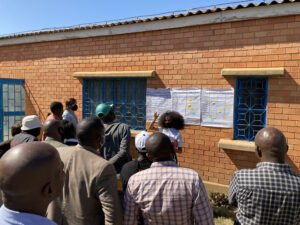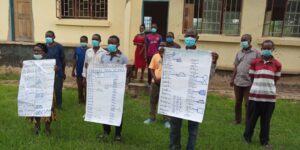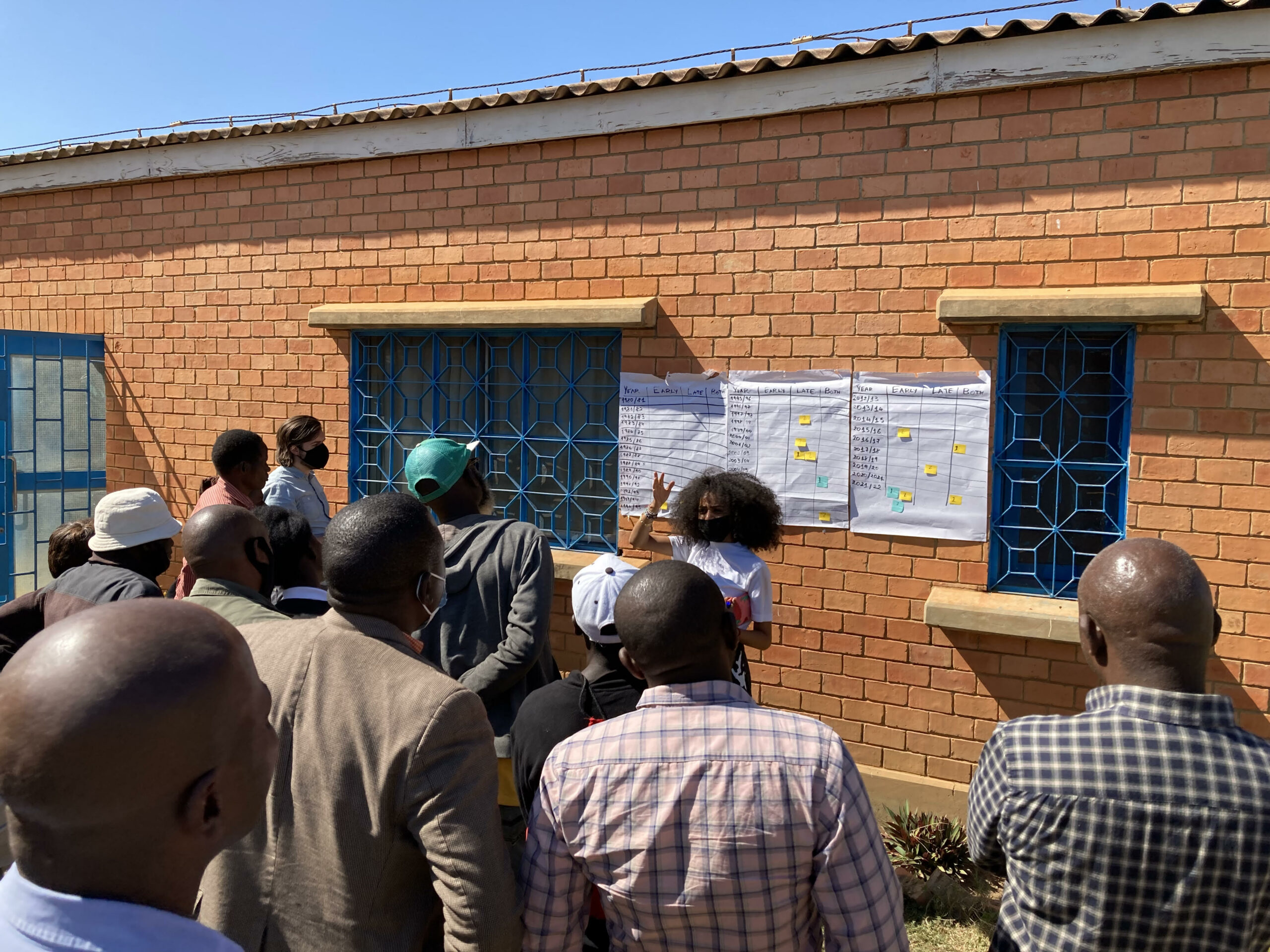Local knowledge is often ignored but yet it can be an effective tool for estimating climate change impacts. What happens when the local input is absent? In this blog, PhD Researcher in the Department of International Development at the School of Agriculture, Policy and Development , Max Mauerman shares the value of incorporating farmers’ knowledge into assessments of drought impacts, focusing on Zambia

In 2023, the 28th United Nations Climate Change Conference reached a landmark agreement: The establishment of an international fund to compensate vulnerable communities for the material harms of climate change. This agreement was the culmination of more than 15 years of negotiations on how to share the financial burden of climate change’s “loss and damages”. However, a crucial question remains: How should the international community define and measure these damages?
Unlike physical modeling of the climate system, determining whose perspective counts when valuing climate change impacts is a normative matter, with no technocratic solution. The suitability of an impact modeling approach depends on which sectors or communities are meant to be compensated for damages, the ways in which their livelihoods are sensitive to climate variability, and the degree to which they can adapt their practices to extreme weather conditions over the short and long term. Financial policies to cover loss and damages – weather insurance, conditional debt instruments like catastrophe bonds, and humanitarian funding pools, inter alia – all rely on context-dependent assumptions about these human factors to put a value on extreme weather’s livelihood impacts.
However, in the global South, communities frequently lack the data and voice to make their claims legible to the global financial framework. In the absence of local input, financial firms tend to rely on their own assumptions or industry “best practices” when designing policies for the global South, and exploitative and ill-suited financial instruments have proliferated in the gap. In Jamaica, narrowly defined meteorological triggers for a hurricane catastrophe bond meant that insurers provided no payouts during a major storm in 2024, despite tens of millions of dollars in subsequent damages. In Malawi, a crop model’s faulty assumptions about farming practices led to an intergovernmental insurance facility failing to pay out during the historical drought crisis of 2015/16. These are not isolated incidents; they are indicative of systemic gaps in the fast-growing, weakly regulated world of climate risk finance, which the UN system increasingly relies on to underwrite the new Loss and Damages Fund.
To address these gaps between the local experience of climate impacts and the way they are modeled, the international community needs new methodological standards and data that reflect the perspective of vulnerable communities. In our latest work, published in Climate Services, we collect novel data on farmers’ experiential knowledge of droughts to establish a better historical record of local climate impacts, and use this data to explore how climate vulnerability varies across places and contexts. This work builds on a larger programme of participatory climate research at the University of Reading, including PICSA, TAMSAT-ALERT, and collaborations with Columbia University’s Daniel Osgood on participatory design of weather index insurance.
For this project, we collaborated with the Government of Zambia and the UN World Food Programme to survey a nationally representative sample of nearly 1,000 communities across Zambia on their recollected historical drought impacts. As a practical matter, this data was meant to inform the Government of Zambia’s regulation of weather insurance under its flagship Farmer Input Support Programme (FISP). As researchers, we also wanted to understand the degree to which farmers’ recall of climate events is coherent and reliable, as previous work on this subject has been inconclusive. With a large-scale and nationally representative dataset, we were able to conduct a novel statistical analysis of farmers’ recollected drought events.
We investigated how farmers’ recollected worst drought years in Zambia compare to the weather record across time – i.e., which years had the worst droughts – and place – i.e., which locations tend to experience drought around the same time. We found that farmers’ recollections of drought are strongly consistent with rainfall deficits over both space and time, as measured against an index of meteorological drought which is similar to the one the Government of Zambia uses for insurance.
We also estimated the bias that might arise from ignoring farmer knowledge and instead using a “status quo” approach to estimating climate impacts through the direct relationship of weather to yield. We found that such an approach, typical of prior work, would be biased over time, leading to over-estimates of drought impact in more recent years and under-estimates of drought impact in the more distant past.
Our findings indicate that, in a wide range of geographical and temporal situations, farmers’ experiential knowledge serves as a reliable stand-in for weather shocks to livelihoods. What’s more, we find that assuming constancy in the relationship between weather, yield and livelihoods, as agricultural climate impact studies have typically done, would lead to inaccurate and overconfident conclusions. These shortcomings could be avoided by starting from farmers’ own experience as the basis for estimating climate impacts.

In our ongoing work, we are building on these initial findings by developing a predictive model of which environmental and social factors best explain farmers’ self-reported drought impacts.
Unlike in oceanic and atmospheric modeling, where sharing of data and model intercomparison are basic principles, climate impact modeling remains piecemeal and ad-hoc. One major reason for this under-development is that much practical impact modeling work is not done by academics but by the private financial sector, which has competitive incentives to keep loss data private and methods proprietary. Our work is intended to advance the loss and damages conversation by providing an open, bottom-up standard for measuring livelihood impacts which can be applied across contexts, in the spirit of the CMIP initiative for climate modeling and the AgMIP initiative for crop modeling. We believe that public research goods are essential for making financial decisions about loss and damage in a responsible, accountable way.
In a 2022 perspectives paper, “Small is beautiful: climate-change science as if people mattered”, Regina Rodrigues and Reading’s own Ted Shepherd lay out a paradigm for studying climate impacts in a local decision context. In it, they emphasize “the need to empower local communities to make sense of their own situation, which can be addressed by developing ‘intermediate technologies’ that build trust and transparency.” We hope that our work on farmers’ knowledge of climate impacts can contribute to this crucial research agenda.
About the author
Max Mauerman is a PhD Researcher at the University of Reading, School of Agriculture Policy and Development. He currently works as Staff Senior Staff Associate at Columbia University’s International Research Institute for Climate and Society.
For more information about the study please visit:

